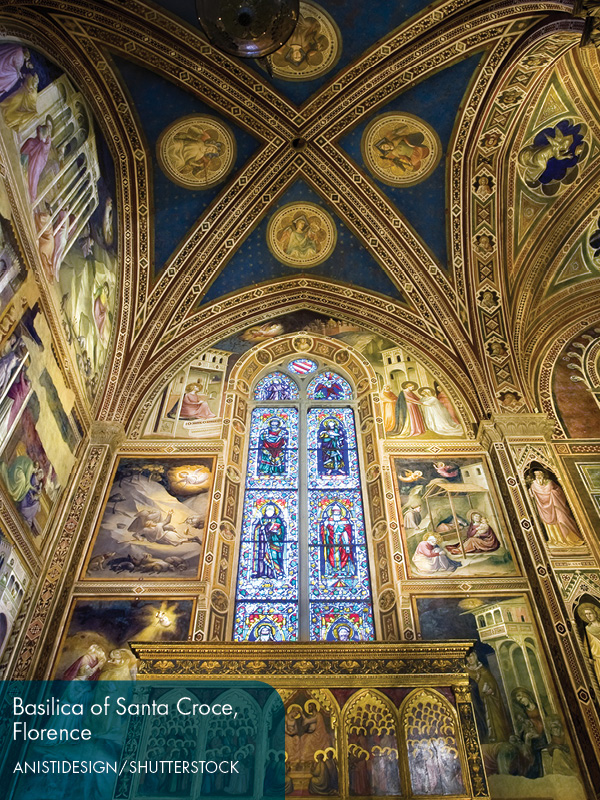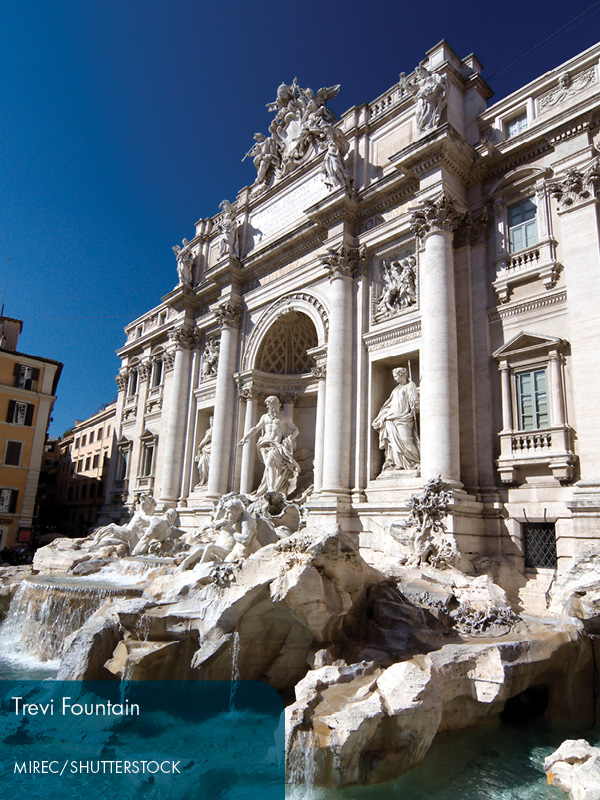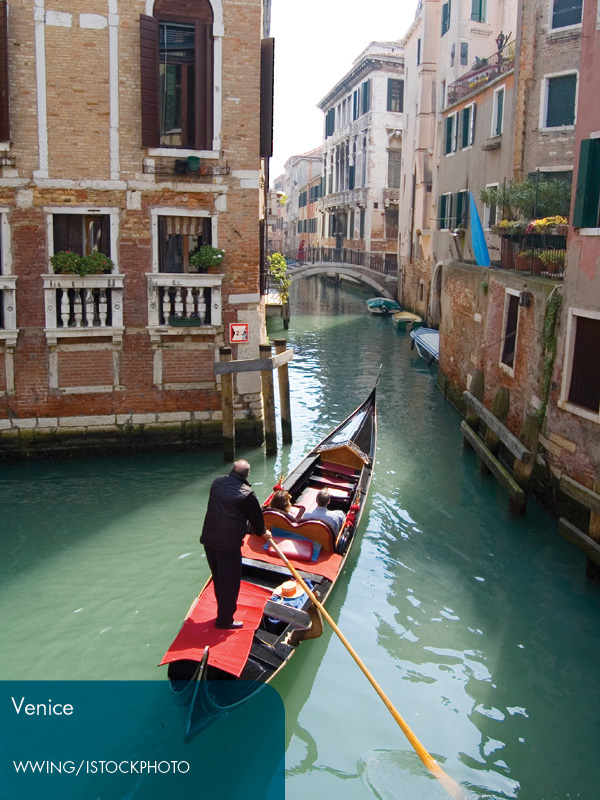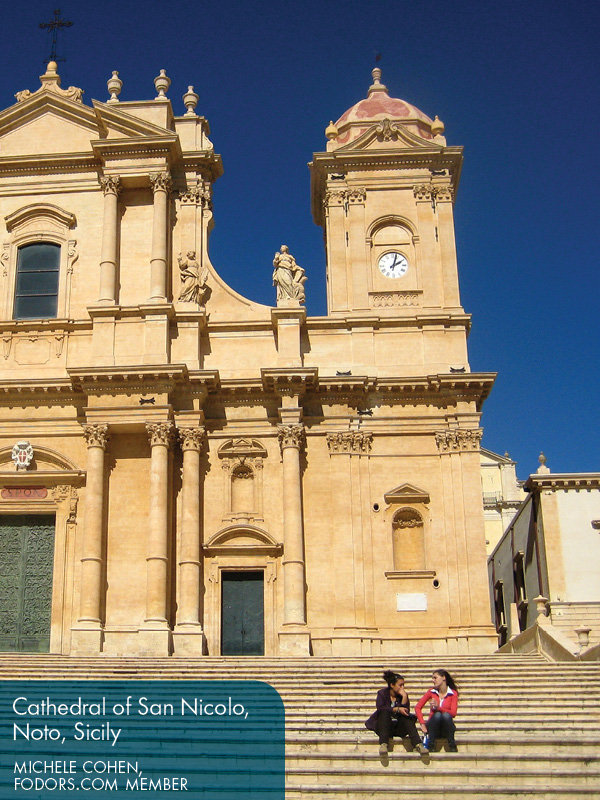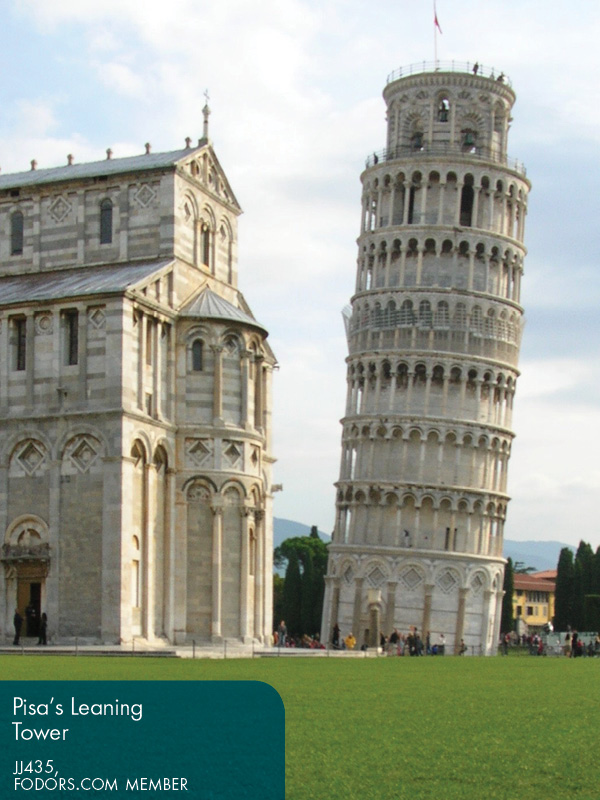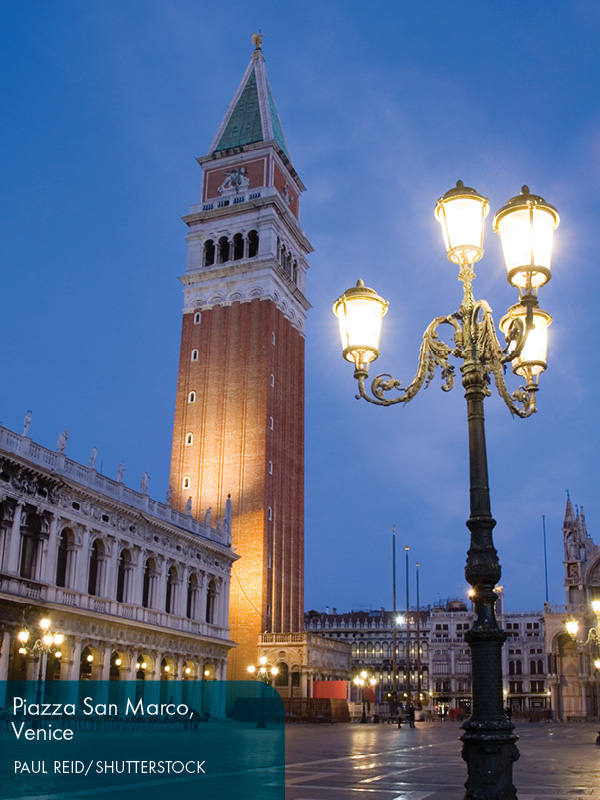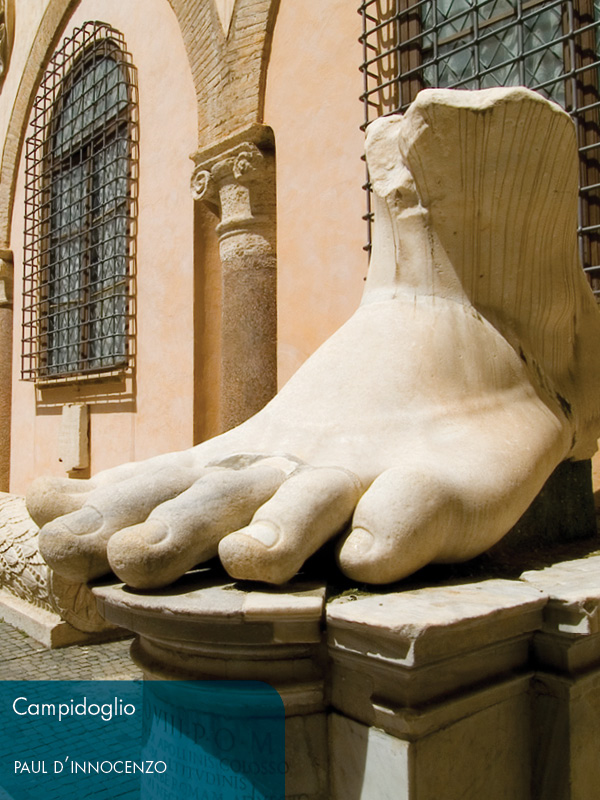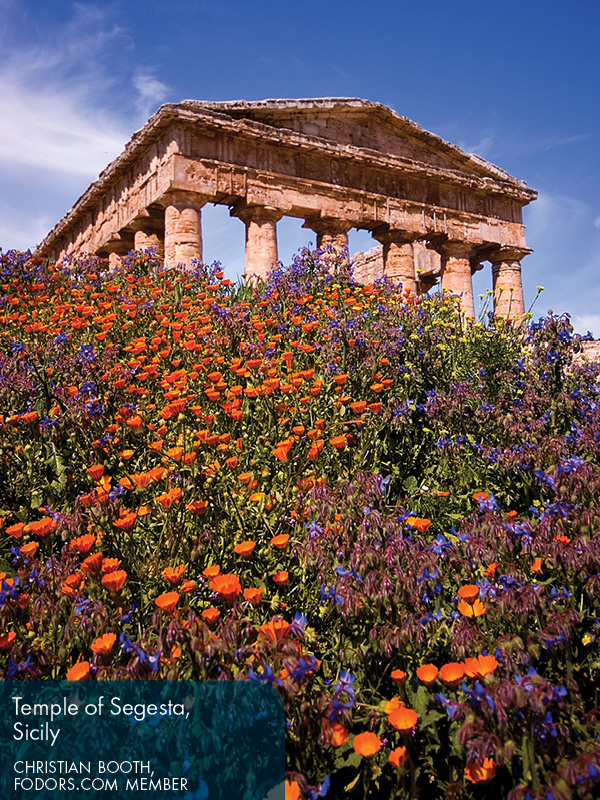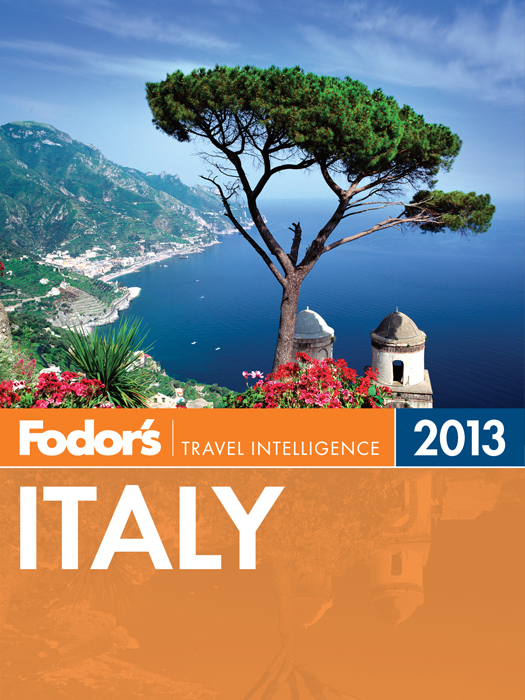
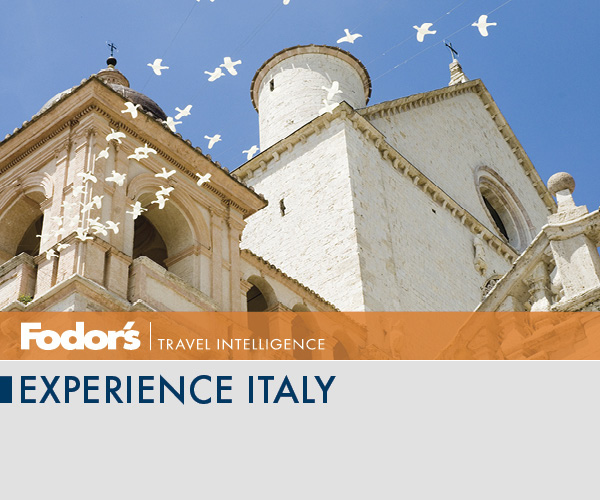
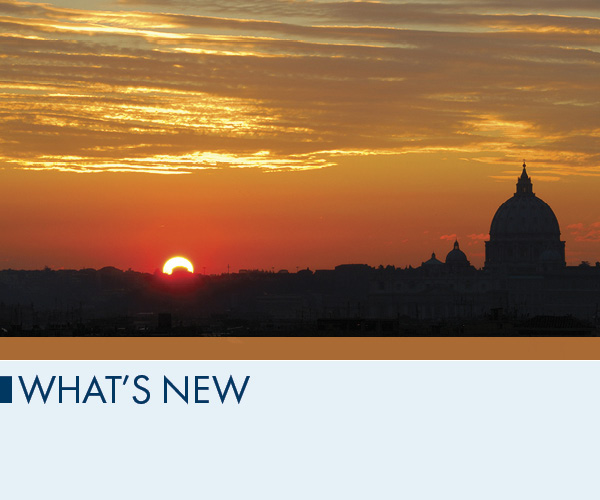
Steeped in history and tradition, and bearing a lustrous patina of antiquity, Italy luxuriates in the illusion that change comes slowlyor maybe not at allin the Bel Paese . Despite the ravages of war and urban renewal, Italians have skillfully retained so much of the past that it seems the historical centers of many Italian cities would be easily recognizable to residents of 350 years ago. The present and the past merge seamlessly. Tiny cars and whining scooters in Italian cities and towns maneuver without missing a beat through narrow cobblestone streets designed for horses and carriages.
The Hot, the Hip, and the New
The pervasiveness of the past also makes us forget that Italy, not by breaking with tradition but rather by continuing it, has been in the forefront of creating major monuments of todays style. True sons of the Renaissance, of Brunelleschi and Leonardo, who bound together the ideas of beauty and functionality, contemporary Italian designers and architects have, by creating everything from skyscrapers to sports cars, raincoats to coffee pots, infused beauty into the everyday lives of people around the world.
Despite Italys ties to the past, modern and Italian design have become almost synonymous. Perhaps because Italy, or more exactly, Milan has become the epicenter of the fashion and design world, Italians seem more obsessed with fashion and with the new than other Europeans. While youll easily be able to buy your choice of a classic suit or dress for business wear, for casual wear youll have to look hard for a sweater or shirt thats not in the very latest seasons color or cut. And be forewarned: theres zero tolerance for even slightly worn or frayed clothing.
After Berlusconi
Visitors also tend to forget that Italy is one of Europes newest countries, having been unified only in 1861. Prior to that, Italy had been divided into myriad states, some at times independent and glorious, but most for centuries under the domination of Spain, France, Austria, or the Papacy. Many Italians still identify with their region or city more strongly than with the Italian nation, and local cultural and even linguistic differences have been maintained.
The variety and contrasts that Italian regionalism produces makes Italy a fascinating place to visit, but it weakens Italians commitment to developing a viable nation state. The centuries-long period of foreign domination may also explain the weakness in Italy of the democratic social and political institutions now taken for granted in other west European countries, contributing to Italys frequent episodes of political instability.
The idea that Italy really cant govern itselfshared even by many Italiansand the weakness of her political institutions came home to roost in her most recent change of government. Like a disturbing dream from the past, it was foreign powers, not Italians, who indirectly, but quite clearly, forced the elected (but corrupt and inept) Italian government from power.
In late 2011 it was understood by European leaders that the government of Silvio Berlusconi had lead Italy into a fiscally chaotic situation that seriously threatened the economic stability of the European Union. Previously, over the course of several months, the EU had pressed Mr. Berlusconi to institute the painful but necessary fiscal and labor market reforms to rebuild confidence in the Italian economy and stimulate growth.
Finally, facing increasingly severe expressions of lack of confidence in Italy from international financial markets, the EU, through threats of withdrawal of fiscal support, which would have plunged Italy into extreme economic chaos, caused Parliament to deliver a vote of no confidence, thus forcing Berlusconi from power. The Italian President appointed an unelected technocrat prime minister, Mario Monti, to initiate and carry through far-reaching reforms that imply a substantial restructuring of Italian society. At this writing, the EU is satisfied with the job Mr. Monti is doing, but hes encountering fierce resistance from Berlusconis allies in Parliament and from broad sectors of the Italian populace.
How to Handle Immigration
Italians have long enjoyed a reputation for being a friendly and hospitable people, but lately that situation seems to have changed. Until quite recently, more Italians left than immigrants arrived, but with growing Italian prosperity, unaccustomed numbers of refugees (and people simply looking for a better material life) began arriving from across the Mediterranean and from Eastern Europe. Although Italy still has a lower percentage of foreign-born residents than most western European countries (and the increased immigration has had no effect either on crime or the unemployment rate, the Berlusconi government was able to politicize the issue and manipulate public opinion against immigrants), Italy has subsequently been rated as the most xenophobic country in Europe, and its government strongly condemned by the human rights body of the European Union.
But Italian friendliness and hospitality havent totally disappeared; even those who complain about immigrants will contribute generously to charities assisting them, and incidents of violence against immigrants are much less frequent in Italy than in other European countries.
A Secular State? Well, Maybe
Rome is still the spiritual home of the worlds 1.1 billion Catholics, but, as in other European countries, church attendance in Italy has been eroding since the 1950s, and today fewer than one in five Italians attend church regularly. Although religion is assumed to maintain a powerful hold on Italian life, with the Church regularly weighing in on political and social issues, the Church was powerless to dampen the well-publicized sexual excesses of Mr. Berlusconi, and its voice is ignored when opposing the anti-immigrant and xenophobic measures of his government.
While its been able to silence any serious discussion of legalization of same-sex relationships, its been less effective in doing the same when its against the personal interests of large numbers of Italians. Divorce, although complicated, is possible in Italy; so is legal abortion.
Next page


